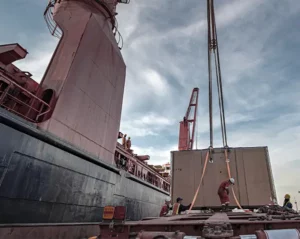In this article, we’ll explore the main customs taxes in Tunisia, the necessary administrative procedures, and how to navigate this system efficiently.
The customs system in Tunisia plays a vital role in international trade and the importation of goods. Customs taxes can vary depending on many factors, including the type of products, their origin, and any trade agreements in place. Understanding these taxes is essential to avoid surprises and optimize your importation costs.
In this article, we’ll explore the main customs taxes in Tunisia, the necessary administrative procedures, and how to navigate this system efficiently.
The Customs System in Tunisia
The Directorate General of Customs (DGD) is responsible for managing imports, exports, and controlling goods crossing Tunisia’s borders. It enforces customs regulations in line with Tunisian legislation and international agreements.
The main types of customs taxes are:
- Value Added Tax (VAT): This tax applies to most imported goods. The standard rate is 19%, though reduced rates may apply to certain products.
- Customs Duties: These taxes vary depending on the type of product being imported and can range from 0% to 30% or more. Customs duties are calculated based on the customs value of the goods, which is usually determined by the purchase invoice or the market value.
- Luxury Goods Tax (TPL): This tax applies to certain categories of products considered luxury items, such as high-end vehicles, jewelry, or electronic devices.
- Handling and Storage Fees: Fees may apply for processing and storing goods in customs zones, depending on the current regulations.
Procedures and Necessary Documents for Importing
To import goods into Tunisia, here are the documents and steps you must follow:
- Customs Declaration: Every importer must submit a detailed declaration of goods. This declaration includes information such as the description of products, their value, and their origin.



